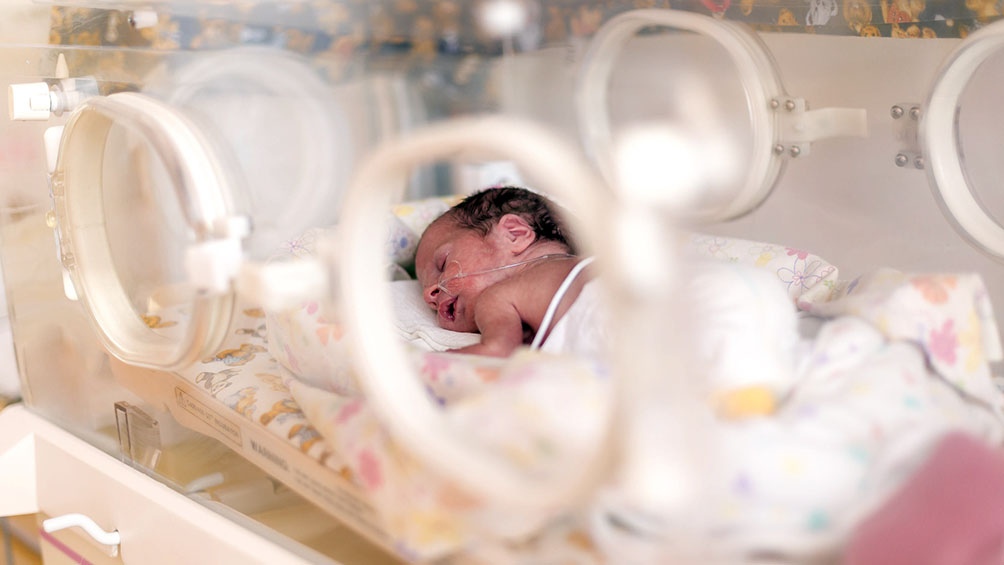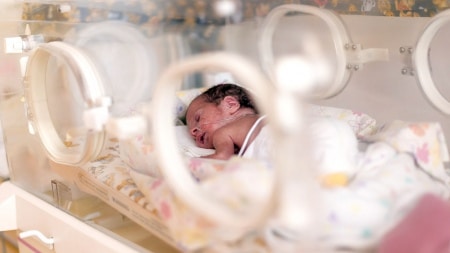 When breast milk is not available, the best alternative is donor human milk.
When breast milk is not available, the best alternative is donor human milk.
8.8 percent of the babies born each year in Argentina are premature, that is, they reach the world before 37 weeks of gestation, reported from the Ministry of Health, on the eve of the world day of newborns with these characteristics, which will be commemorated tomorrow and whose motto this year is “The embrace of the family, a powerful therapy”, in reference to the importance of “skin-to-skin” contact.
As reported by the health portfolio, during 2018 8.8% of births occurred prematurely, an increase of 10% being observed in the last decade; In the same year, the Low Birth Weight rate (infants weighing less than 2.5 kilos) was 7.4% and the Very Low Birth Weight rate (infants weighing less than 1.5 kilos) was 1.1%.
The Ministry also described that this percentage of low-weight newborns contributes to more than half of infant mortality.
In Argentina, the national survival average in very low birth weight premature infants is 71%, being much lower in extremely premature infants; In addition, there is a gap in the chances of survival closely linked to access to health, the quality of care in neonatal intensive care units, and the operation of perinatal care service networks.
Globally, this gap is clearly expressed: while in high-income countries more than 90% of premature babies survive, in low-income countries, that percentage drops to 10%.
#SkinContactSkin 🤱🏾 is important for premature babies.
🔸 Establishes the bases for the best development
🔸 Favors the initiation of lactation
🔸 Stabilizes vital parameters
🔸 Promotes healthy intestinal flora #MesDeLaPrematuridad pic.twitter.com/h3QPZBdpit— OPS/OMS (@opsoms) November 15, 2022
The World Health Organization published new guidelines on the care of premature infants that represent a paradigm shift in care in neonatology units.
“According to these guidelines, skin-to-skin contact with the caregiver should take place immediately after birth, known as the ‘kangaroo mother care’, instead of dedicating the first phase after delivery to incubator care,” said the statement released by the agency.
“This procedure marks a significant departure from previous guidance and current clinical practice, reflecting the immense health benefits of having the caregiver and their preterm infant together after birth, rather than be separated”.
The WHO guidelines “also offer recommendations to ensure emotional, financial and workplace support” for families.
An estimated 15 million babies are born prematurely each year, representing more than one in ten babies born worldwide, and an even larger number of babies (more than 20 million) are low birth weight.
The WHO also noted that currently prematurity “marks an increasing trend in numerical terms” and “is the leading cause of death among children under five years of age.”
In this context, it is stated that “the majority of premature babies can be saved by applying feasible and effective measures, including quality care before, during and after delivery, prevention and treatment of the most common infections, and the kangaroo mother method.
“This method -described the agency- combines skin-to-skin contact with the main caregiver (usually the mother) for as many hours as possible, using a baby carrier or a special cloak, with exclusive breastfeeding”.
The change of recommendations
Previous recommendations called for stabilizing these babies in an incubator or warmer; this process lasted, on average, between three and seven days.
“However, research has now shown that starting kangaroo mother care right after delivery saves many more lives, reduces infections and hypothermia, and improves feeding,” the WHO said.
The guidelines also repeatedly and strongly recommended breastfeeding to improve health outcomes for preterm and low birth weight infants, as it is scientifically shown to reduce the risks of infection compared to feeding with infant formulas.
When breast milk is not available, the best alternative is donor human milk, although in the absence of donated milk banks, fortified “preterm infant formula” can be used.
Since 2009, November 17 is celebrated as “World Prematurity Day”; in Argentina the activities extend to the entire week with which the date coincides, thus celebrating Prematurity Week, which this year began last Monday.
This year’s motto is “The hug of the family, a powerful therapy” and precisely highlights the importance and need for “skin-to-skin” contact between premature infants and the puerperal person or another close relative, from the first hour of life and frequently, during their hospitalization in the Neonatal Intensive Care Unit.


